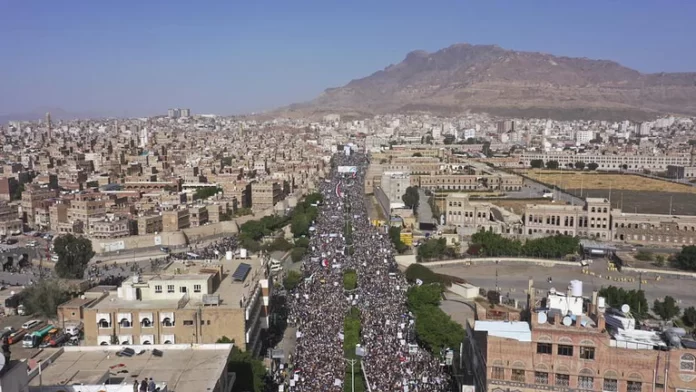A Saudi-led coalition fighting rebels in Yemen’s capital declared a unilateral ceasefire on Wednesday, despite the insurgents’ rejection of the proposal.
The Saudi-proposed ceasefire began at 6 a.m. on the eve of the holy Muslim fasting month of Ramadan. Several similar efforts have failed, and there has been no immediate independent confirmation that hostilities between Saudi-led forces and Yemen’s Houthi rebels have been paused.
The announcement of the ceasefire came on Tuesday evening, which raised immediate doubts because the Iran-backed rebels are skipping an ongoing summit over the war in Saudi Arabia, known as the Saudi-based Gulf Cooperation Council, because it’s taking place on their adversary’s territory.
However, within some hours, Houthi official Mohammed al-Bukaiti rejected the offer over the continuing closure of Sanaa’s airport and restrictions on the country’s ports by the Saudi-led coalition.
“The team’s joint forces command declares a halt to military operations inside Yemen beginning Wednesday at 6 a.m.,” as per report, citing a statement from coalition spokesman Brigadier General Turki al-Malki.
Houthi leader Mohammed al-Bukaiti tweeted that “the enforced siege on Yemen is a military action because the force of weapons enforces it. If the blockade is not lifted, the coalition’s announcement that it is halting its military operations will be meaningless.
“This means our military operations to break the siege will continue,” he explained.
The United Nations and others had been pushing the warring sides to reach a truce for Ramadan, as has tenuously occurred in the past. Ramadan is likely to start this weekend, depending on the sighting of the new crescent moon.
The GCC, whose members are Bahrain, Kuwait, Oman, Qatar, Saudi Arabia, and the United Arab Emirates, began the talks Tuesday in Riyadh. The summit is expected to continue through April 7.
The intervention, codenamed Operation Decisive Storm, began with a bombing campaign against Houthi rebels and was later followed by a naval blockade and the deployment of ground forces into Yemen. The Saudi-led coalition has attacked the Houthi militia and loyalists of Yemen’s former President, Ali Abdullah Saleh, who Iran backs.
In January 2016, the Saudi foreign minister stated that US and British military officials were in the command and control center responsible for Saudi-led airstrikes in Yemen, having access to lists of targets but were not involved in choosing targets.

